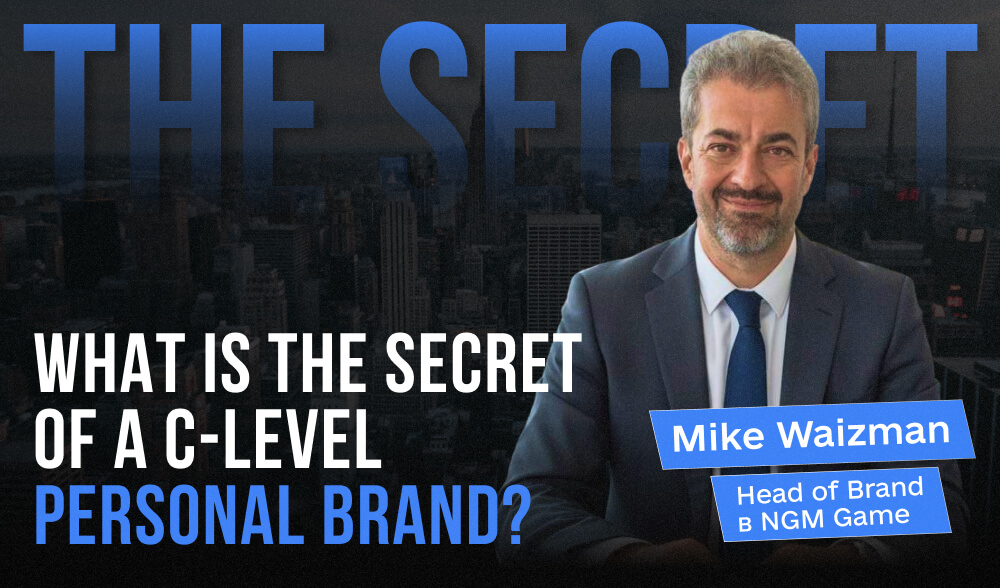Don't miss interesting news

In today’s business, a C-level executive’s personal brand is becoming as important as the company’s brand. The way a CEO speaks about strategy, makes decisions, and interacts with the market determines the trust of clients, employees, and investors.
Mike Wiseman, Head of Brand at NGM Game, is convinced that any logo always has an idea, a team, and a personality behind it. In our conversation, we discussed the difference between a top manager and a specialist, what qualities form leadership, and what approaches help a brand grow on a global level.
A specialist completes a task perfectly, like a sniper in CS. And C-level plays a clutch game: the team is already “merged”, there is no purchase, the information is muddy, but you are one against four and you drag the round. It is not accuracy that matters here, but strategy and the ability to keep the whole map in mind.
The most striking is the rebranding of Yandex.Taxi to Yango. We realized that it was one thing to change the logo of a small company, and quite another for a service used by millions of people every day. The risk was obvious: losing brand familiarity, confusing users, and slipping in terms of performance.
But we relied on expanding the ecosystem: a taxi is just the entrance, followed by delivery, ridesharing, food, and the entire range of services. As a result, the rebranding didn’t just “go unnoticed” but became a growth driver. Users accepted the new brand, and the market saw that it was no longer just a travel app, but a full-fledged platform.
It means being responsible for everything that people think about the company: from users to partners and employees. Even if an operator has a crooked banner somewhere, it’s your fault. Brand is not a logo, but a common sense that unites everyone around the product.
It’s like in a family: no one remembers who really broke the vase, but mom is always sure that it was you.
For players, it is emotions: “I want more”. For investors, it’s numbers: retention, GGR, growth. If you can show both emotion and metrics at the same time, then the round is yours.
I will surprise you, but it is not business literature, but Sergei Lukyanenko. His “Night Watch” perfectly shows management in its purest form. Everything is just like in a company: there is management (Light and Dark), there are employees of different levels, and everyone has their own KPIs and resources. Someone performs tasks strictly according to instructions, while others are creative and take on more.
As a result, the right mix of employees’ strengths and weaknesses helps to move the company, and history, forward.
For me, this is a reminder: a good leader does not blindly follow the company’s “code” but understands the context and knows how to make decisions in the gray area.
Do things faster and don’t wait for the “perfect moment”. Mistakes are normal. Follow your heart.